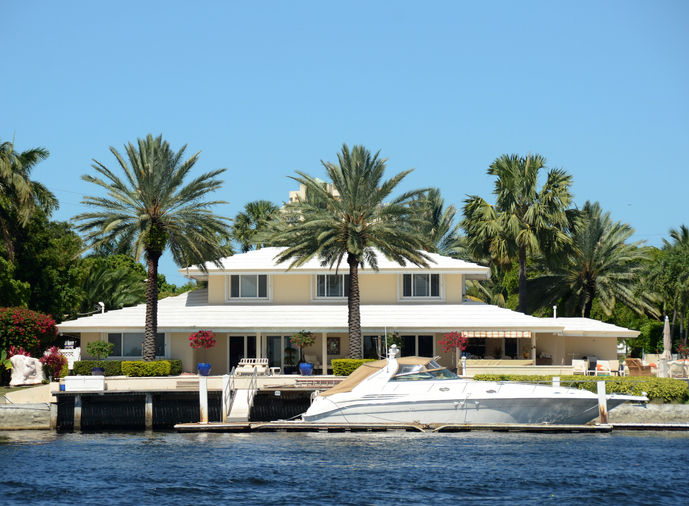
A home on the beach comes with numerous perks, but it also has plenty of nuisances that you won’t find in any other property type. If you’re about to make your dream of owning a waterfront property in South Florida come true, it’s important to be thoroughly prepared for the home buying process and know what to expect.
Here are some of the things you should look into:
- Financing
Are you buying the home with cash? If so, the sale will be quite straightforward. However, if you plan to finance the purchase with a mortgage, the approval process may take longer than a standard home loan.
Waterfront homes are often priced higher than regular homes, which means you may need to qualify for a jumbo loan. Jumbo loan applications require a high credit score and low debt to income ratio, so review your finances first before talking to a lender. You might also have to show proofs of cash reserves.
As the approval process for a jumbo loan is typically longer, it’s best to prepare early and gather all the required documents as soon as possible.If the property will serve as your secondary home, you also have to meet strict qualifying standards to obtain a mortgage.
- The location
With waterfront properties, the value of the land is often greater than the value of the structure on it, so it’s important to choose the right location. You can always improve the house, but you can do little to change the surroundings.
Among the things to consider are the terrain, the elevation, and the depth of the water. The ideal property is one that allows you to do the activities you love. For example, a sandy beach may be better suited for a family with young kids or elderly members. If you’re an avid boater or angler, you might want to live in an area with docks and marinas nearby, or one where you’re allowed to build your own dock.
The land’s elevation may also be a factor in the price and desirability. If a higher location makes access to the water difficult, that could make the property less desirable but more affordable. On the other hand, if the land has a gentle slope and easy access to the water, a higher elevation can be ideal, especially because it gives you better water views. However, that can also mean a higher price tag.
- Building restrictions
Building on the waterfront can come with several restrictions, depending on local regulations and those of the homeowners’ association, if there’s one. Find out what these are before buying a property and see how this may affect the structures you plan to build.
For example, if the land is elevated, you may have to build a retaining wall, which can add to your construction costs. If you’re planning to add a dock or seawall, you might need to get a special permit to do this. The type of watercraft allowed in the neighborhood may also be restricted.
Make sure to get a land survey and find out if you own any part of the water or the area leading to the water, especially if you’re looking to own a private beach.
Get help from an expert South Florida Realtor
To help you make well-informed decisions, get in touch with Connie Cabral at 305.776.0899 or email her at Connie(at)ConnieCabral(dotted)com today.
 Connie Cabral Group
Connie Cabral Group
 Connie Cabral Group
Connie Cabral Group

Follow Us